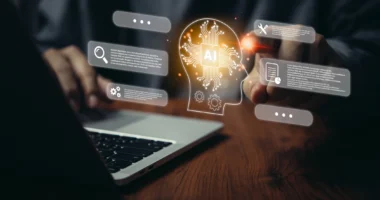In an era where technology relentlessly reshapes industries, the field of accounting stands at the precipice of a profound transformation driven by artificial intelligence. Gone are the days when accountants laboriously sifted through piles of invoices and receipts, their keen eyes scrutinizing every detail for discrepancies.
Today, AI emerges as a powerful ally, revolutionizing tasks with astonishing efficiency and precision. Imagine a world where predictive analytics forecast financial trends with uncanny accuracy, and machine learning algorithms effortlessly automate mundane processes.
As firms embrace these advanced tools, the traditional role of the accountant is evolving, prompting professionals to adapt and redefine their contributions in a landscape that demands agility and insight. This article delves into the myriad ways AI is not just changing how accountants work, but also reshaping the very essence of the profession itself.
The Evolution of Accounting Practices

The evolution of accounting practices has been nothing short of transformative, reflecting the changing landscape of technology and business itself. From the meticulous record-keeping of the ancient Mesopotamians to the double-entry system popularized during the Renaissance, accounting has continuously adapted to meet the needs of its time.
Fast forward to the 21st century, and we find ourselves on the brink of yet another paradigm shift, driven largely by artificial intelligence. No longer confined to mere number-crunching, the role of accountants is expanding dramatically, merging traditional practices with cutting-edge algorithms that enhance accuracy and efficiency.
AI tools now analyze vast datasets in the blink of an eye, enabling accountants to focus on strategic insights rather than rote tasks. Yet, amidst this technological upheaval, the essence of accounting remains intact—fostering trust, ensuring transparency, and guiding organizations toward informed decisions.
As we stand at this junction, the age-old profession is not fading; rather, it is evolving in ways that promise to redefine its future.
AI-Powered Predictive Analytics: Forecasting Financial Trends

AI-powered predictive analytics is revolutionizing the accounting field by enabling professionals to forecast financial trends with an unprecedented level of accuracy. Imagine being able to sift through vast troves of historical data in mere moments, uncovering patterns that inform smarter, data-driven decisions.
These advanced algorithms don’t just analyze numbers—they delve into market sentiments, economic indicators, and even consumer behavior, offering insights that were once buried beneath layers of information. Consequently, accountants can proactively advise clients, anticipate fluctuations in cash flow, and identify lucrative investment opportunities before they become apparent.
As the financial landscape becomes increasingly complex, leveraging these AI tools equips accountants not just to keep pace, but to stay ahead, transforming uncertainty into strategic foresight.
The Future of Accounting: Embracing AI Technologies

As the accounting profession stands on the precipice of a technological revolution, the integration of artificial intelligence is reshaping traditional practices in astounding ways. Picture this: mundane tasks like data entry and reconciliation, once the bane of an accountants existence, are now efficiently handled by intelligent algorithms that learn and adapt over time.
This shift not only liberates accountants from monotonous workloads but also empowers them to focus on strategic decision-making and advisory roles. Imagine reallocating hours spent sifting through spreadsheets to engaging in client relationships or analyzing financial trends with unprecedented depth.
In this brave new world, AI isn’t merely a tool; it’s an ally that augments human capability, fostering a more dynamic and insightful approach to accounting, where innovation thrives and opportunities expand. The future is not just embracing AI—its redefining the very essence of what it means to be an accountant in a rapidly evolving digital landscape.
Conclusion
In conclusion, the integration of artificial intelligence into the accounting profession is significantly transforming how accountants operate, enhancing efficiency and accuracy in their practices. By automating mundane tasks, providing insightful data analysis, and facilitating strategic decision-making, AI empowers accountants to focus on more value-added activities.
As demonstrated by industry leaders like Accountancy Capital, embracing these technological advancements not only streamlines workflows but also positions firms to better meet the evolving demands of their clients. As AI continues to evolve, the future of accounting promises to be more innovative and dynamic, paving the way for a new era of financial management where accountants thrive as trusted advisors.




